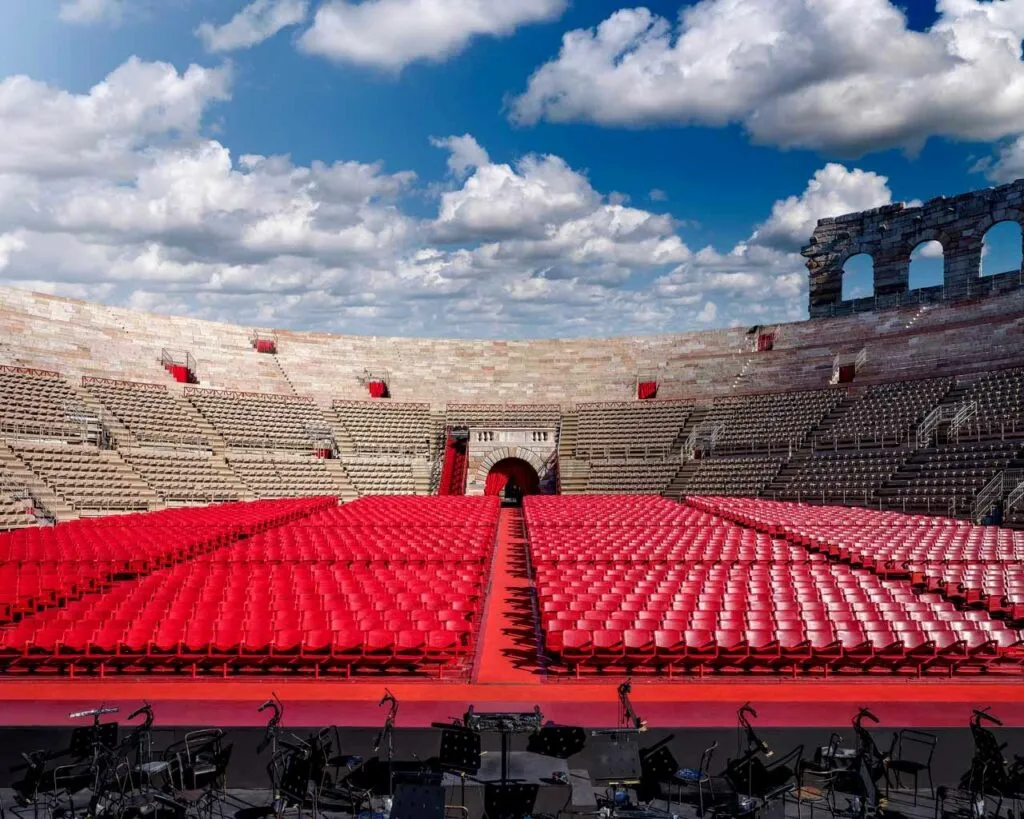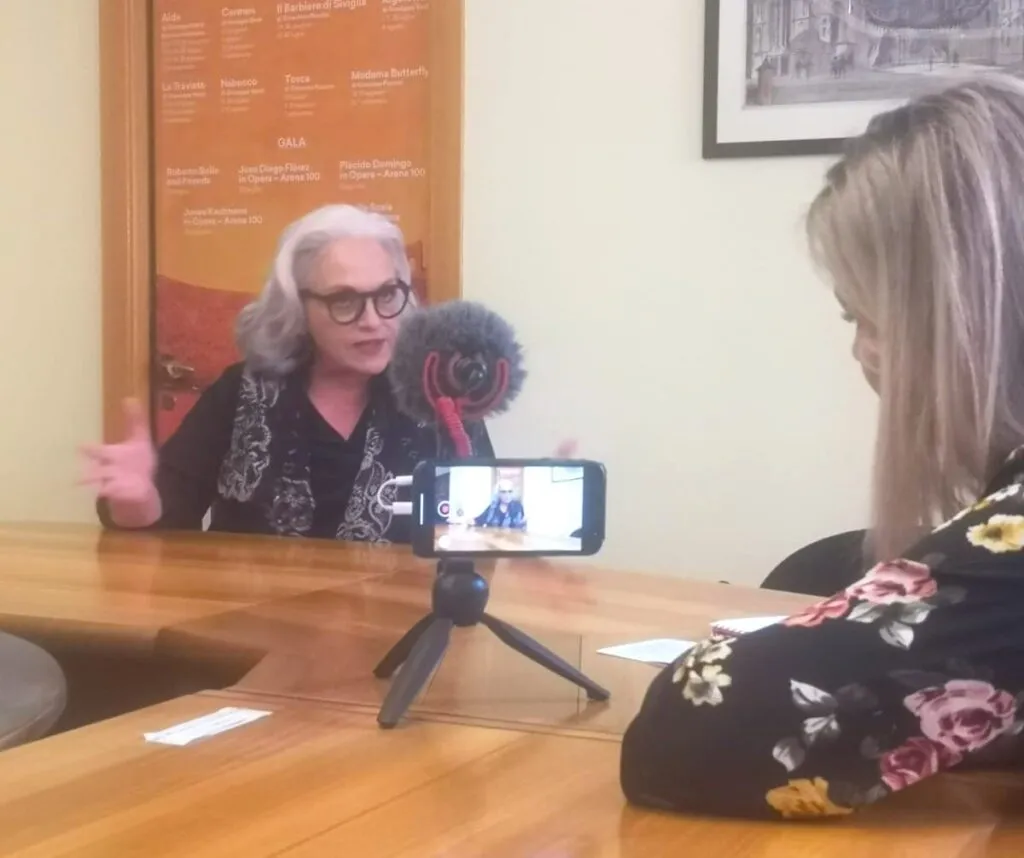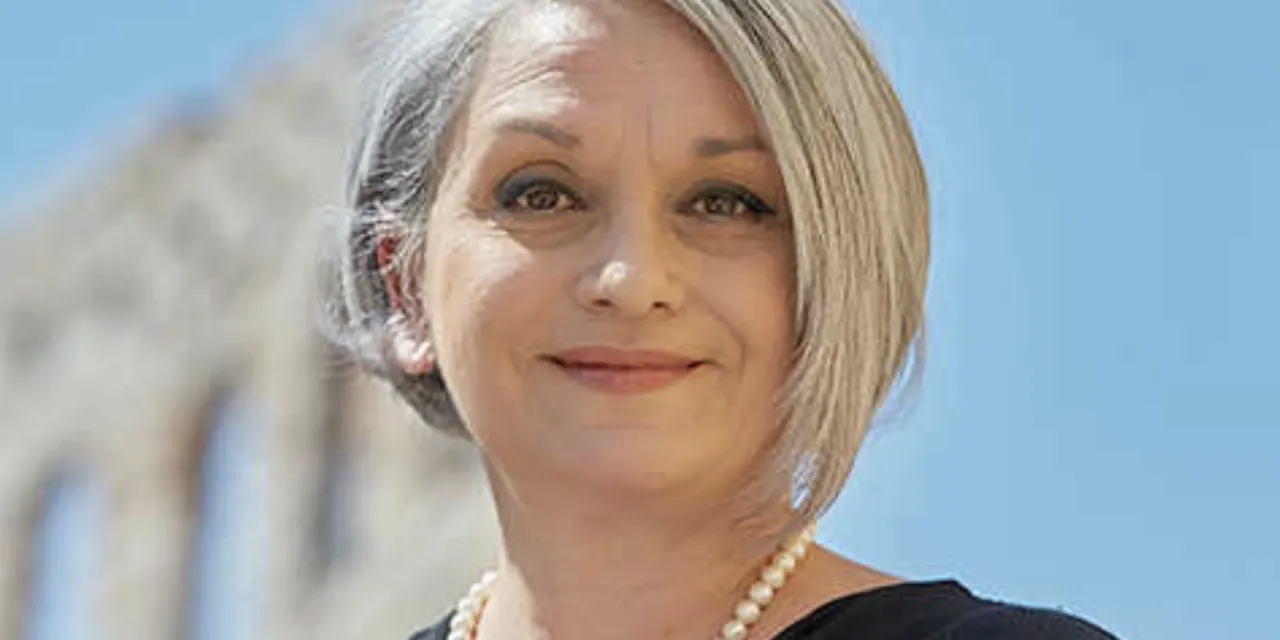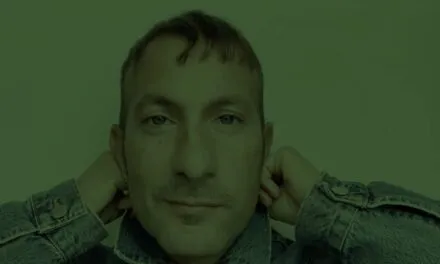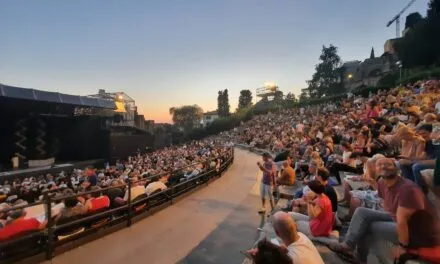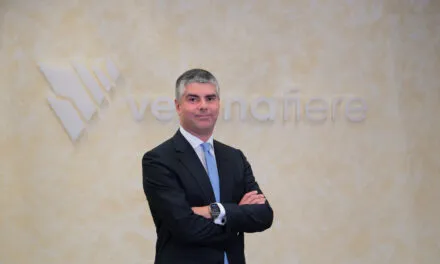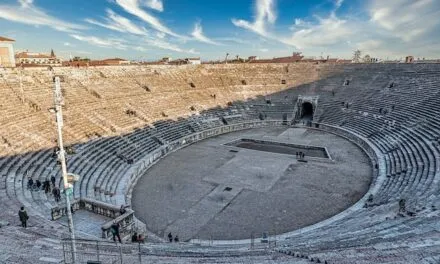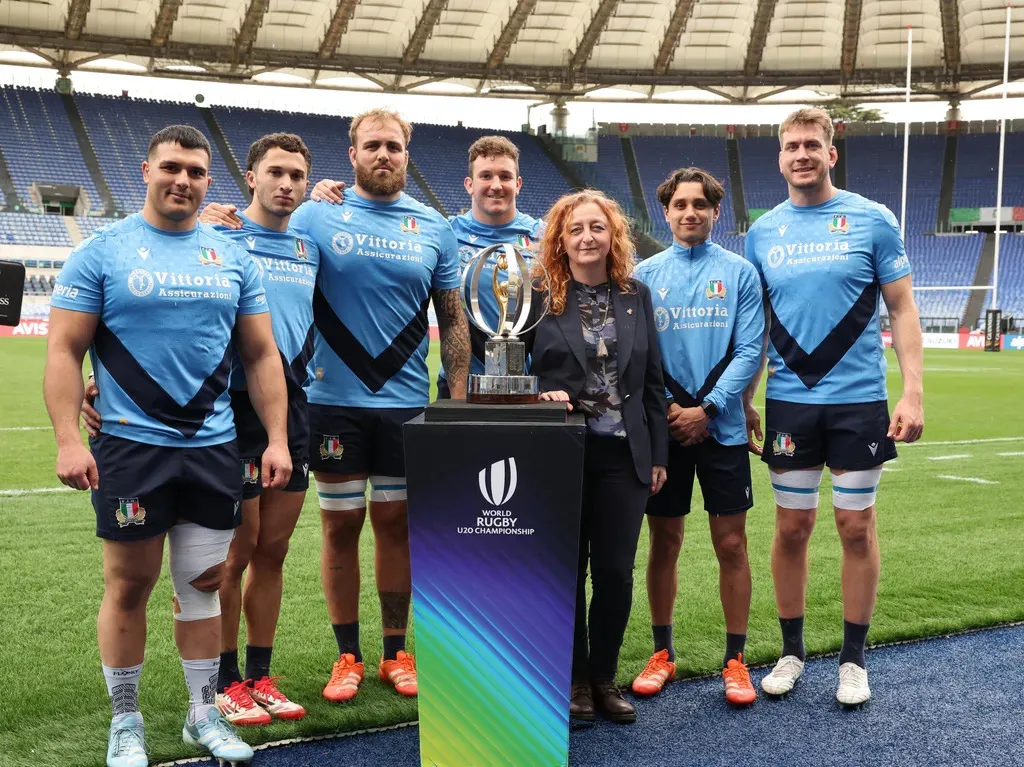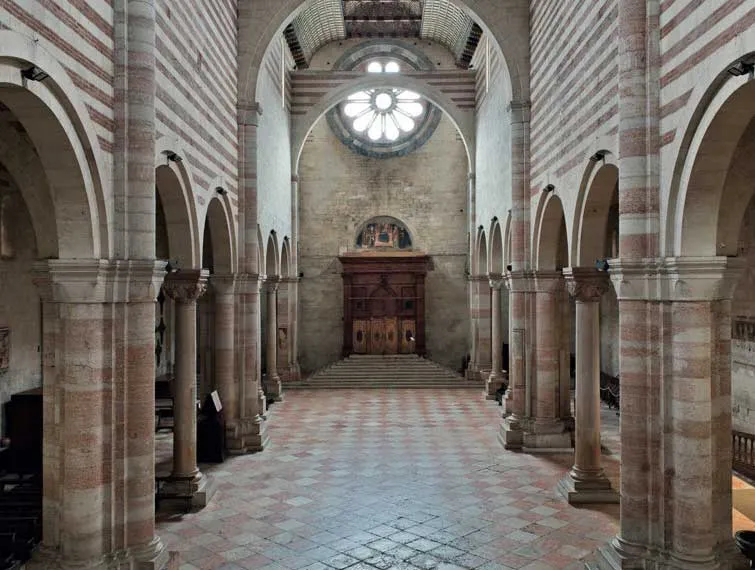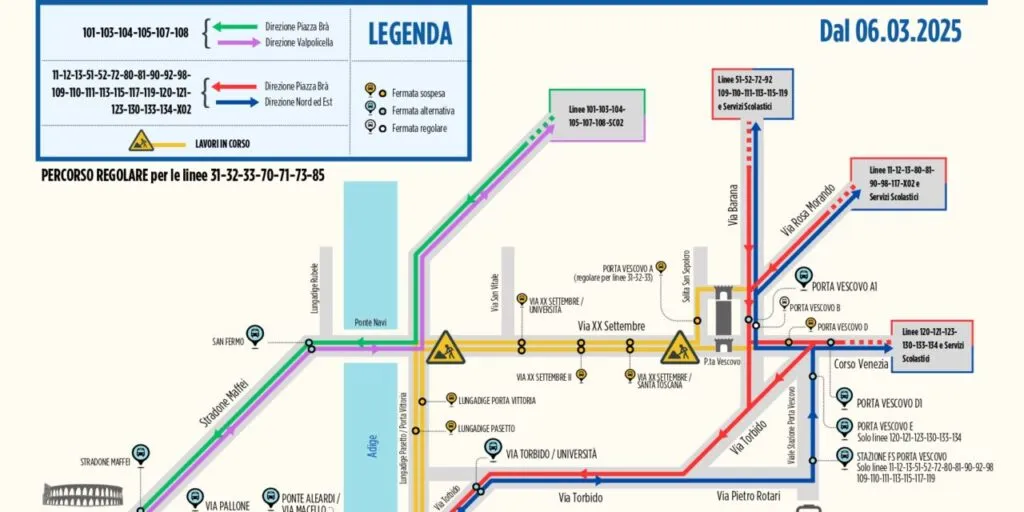One of the few people who can disprove the latin locution “Nemo propheta in patria,” which translates as “No one is a prophet in his own land.” Because she was born in Verona, left it, and then returned to build a career around that oval perimeter, which for many is just a stage but for her represents a world of notes and lights that she cultivated from an early age. She is one of the few Veronese women at the top of her city, at the helm of a machine that reaches a thousand people. A few hours before the premiere in the Arena, which will be broadcast worldwide, Cecilia Gasdia, superintendent of Fondazione Arena di Verona, talks about her emotions and her plans for the future. “It’s time for retirement,” she tells us. But it is hard to believe. Especially when a superintendent greets you as she plays the piano in her temple-office, adjacent to the Ettore Fagiuoli hall (He was an architect and stage designer ‘father’ of the stage designs for the Arena’s opera festival).
Superintendent, what does it mean to you to sign such an important centenary?
I am moved. Being here is really a great satisfaction. I started thinking about this day already in 2018, when I became Superintendent for the first time. I am so attached to the Arena di Verona, starting with little me, who at only five years old was already touching these stones. Then the extra, the choir artist, the solo singer, all the steps, little by little. And not with the goal of becoming a superintendent, as was the case.
There was also a competition that was a turning point for her.
It was in 1980, a competition organised by RAI and named after Maria Callas who had passed away three years earlier. We were about 380 contestants and I won. I was very young, I was 20 years old, and already at that moment my life changed because basically I didn’t want to be an opera singer, it wasn’t in my plans, I was already doing very well at university. I had to make a choice. And this choice catapulted me into the world of opera for over 35 years. In time, I also became interested in the administrative side, which was very interesting but also a great responsibility.
When it comes to responsibility, what kind of machine is the Arenian machine? How many people does it move?
The numbers are very high, there are around 260 permanent employees and then in the summer we hire more than 1.000 people; so for at least three months the opera house becomes a real ‘village’. Beyond that, the responsibility is of various kinds: administrative responsibility for the budgets, for the workers, for the public, for the artists. In short, a machine that has to get into gear and must above all run like a Swiss watch. As far as I am concerned, being a singer does not mean being a good administrator as a consequence. But in my experience I have had the help of everyone, the municipal government (first with mayor Federico Sboarina since last June with Damiano Tommasi) now with that has helped me so much, a board of directors that has been united in all the moments, good and bad, of these five years. Everyone, together, has done an extraordinary job.
What does this centenary tell us?
This is the 100th season because the first one was held in 1913, so this year would be the 100th year since the beginning. However, the world wars and the pandemic interrupted the progressive numbering of the festivals, so what was supposed to happen last year fell this year. A milestone that marks a moment of historic transition: from tradition to the future of the Arena di Verona. Which does not necessarily mean different, but with new ideas for sure.
How will you experience this world Premiere?
It’s been a lot of work, really. Because in addition to the routine you put together so many things, such as the frontline personalities who will be coming: government representatives, ministers, the Presidents of the Chamber of Deputies and Senate, as well as the live world premiere. Then we will also have distinguished guests, starting with Sofia Loren as godmother. This is what this theatre deserves. We have worked hard to try to celebrate a beautiful birthday, because this theatre deserves it and all the workers and this city deserve it. And then the Arena does not only mean Verona, it is also Italy, and it is one of the most international theatres in the world with over 114 countries that send spectators there every year. We deserve a good party and then the Aida, 152 years so well worn, will make us look great.
Indeed, it is an ever more travelling-Arena.
By travelling you make so many connections: with journalists, commercial apparatuses, tourists, and even politicians; we have also been hosted in very important embassies, which give great visibility. It’s very important to get people talking about the Arena because if you don’t do anything, very little gets through.
Would you like to tell us that you found someone who didn’t know the Arena?
Of course. To those who said in the past that the Arena of Verona is world-famous, we say that it is not really so. The Arena is, yes, a very well-known theatre but we should not take it for granted.
Do you see your future abroad? Maybe directing some international theatre...
No. I came into this theatre to save it. Because it was destined for compulsory liquidation, it was in receivership and on lay-off. I tried to make my contribution, I only came in for that reason. I’m not going on to other theatres in the world, I think I’m going to retire soon.
Will you really manage not to retire, to take a break from music?
From music absolutely not, from an administrative position, yes.
In your Arena-related wish list, is there still something you have to fulfil?
Absolutely yes, but ‘my mystery is closed within me’ (Nessun Dorma, famous aria from Turandot)
